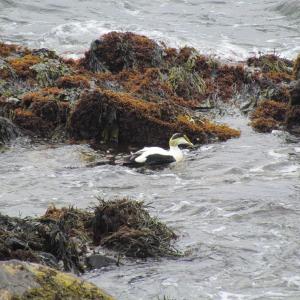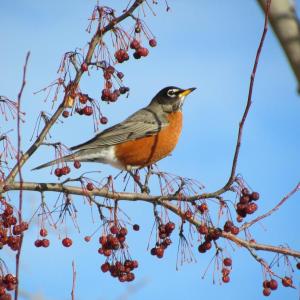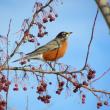Migratory Bird Treaty Act: Erosion of a Bedrock Law
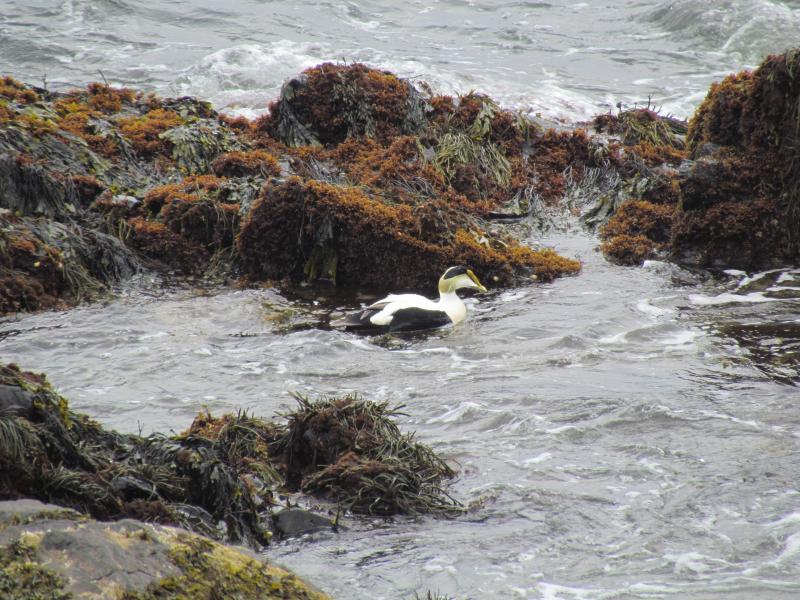 Without the Migratory Bird Treaty Act we might not today be able to see flocks of common eiders off our rocky coasts. (Photo courtesy of Jeff & Allison Wells)
Without the Migratory Bird Treaty Act we might not today be able to see flocks of common eiders off our rocky coasts. (Photo courtesy of Jeff & Allison Wells)
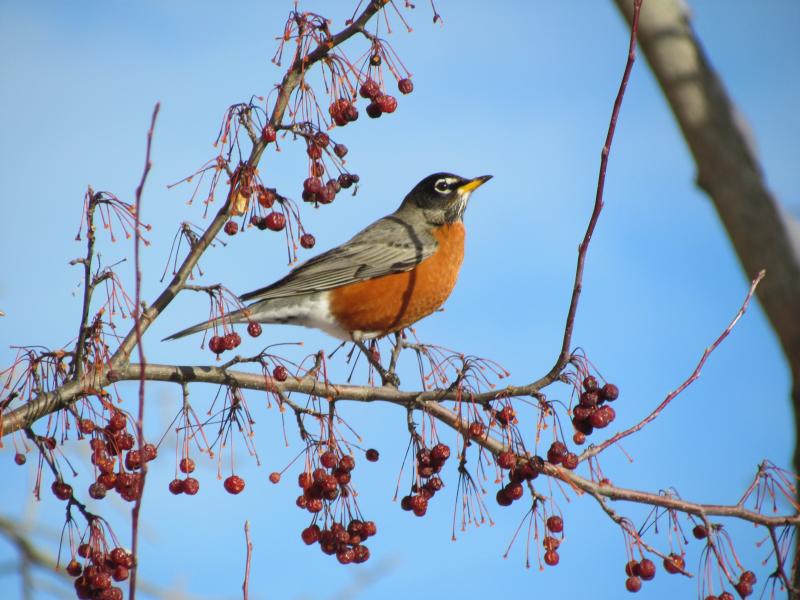 The MBTA requires corporations or individuals to be responsible stewards of our environment, ensuring that they do not kill or harm migratory birds through their actions. American robin photo courtesy of Jeff & Allison Wells.
The MBTA requires corporations or individuals to be responsible stewards of our environment, ensuring that they do not kill or harm migratory birds through their actions. American robin photo courtesy of Jeff & Allison Wells.
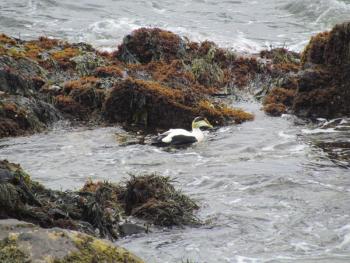 Without the Migratory Bird Treaty Act we might not today be able to see flocks of common eiders off our rocky coasts. (Photo courtesy of Jeff & Allison Wells)
Without the Migratory Bird Treaty Act we might not today be able to see flocks of common eiders off our rocky coasts. (Photo courtesy of Jeff & Allison Wells)
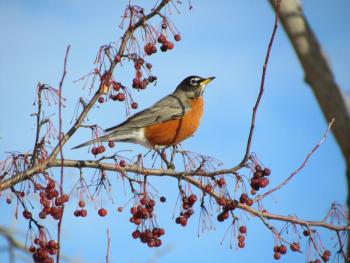 The MBTA requires corporations or individuals to be responsible stewards of our environment, ensuring that they do not kill or harm migratory birds through their actions. American robin photo courtesy of Jeff & Allison Wells.
The MBTA requires corporations or individuals to be responsible stewards of our environment, ensuring that they do not kill or harm migratory birds through their actions. American robin photo courtesy of Jeff & Allison Wells.
We have written a number of times in the past few years about the incredible foresight and persistence of people here in the U.S. and Canada who cared about birds and the environment a century ago. In the midst of the horrific tragedies of World War I and the Spanish Flu outbreak, a bright light shown through that resulted in the signing of the world’s first large-scale treaty among nations to protect wildlife. The Migratory Bird Convention between the U.S. and Canada (technical signed by Britain on behalf of Canada at the time) was finalized in 1916. Two years later in 1918 the Migratory Bird Treaty Act was signed into law in the U.S.
As we have written about in past columns, the new law prohibited the killing of most birds except for waterfowl and a few others under a system of regulations and hunting licenses. Other migratory birds could not be killed or harmed.
Here in Maine we now enjoy the results of this crucial and groundbreaking treaty and legislation. Without the Migratory Bird Treaty Act we might not today be able to see flocks of common eiders off our rocky coasts, short-billed dowitchers and whimbrels searching for food in our coastal marshes, gulls and terns—or even our beloved Atlantic puffins—zipping by us as we scan from a bobbing boat in the ocean.
But the impact of the Migratory Bird Treaty Act has gone even further in protecting our birds in modern times. Activities resulting in the death and decline of birds have shifted from unregulated hunting pressure, as in the early 1900s, to threats like oil spills, powerlines, pollution, habitat destruction, and so many others. The Migratory Bird Treaty Act (MBTA) has been a bedrock part of our country’s powerful legacy of stewardship of the environment on which we all depend.
Because of the MBTA, corporations or individuals must ensure that they do not kill or harm migratory birds through their actions. It requires them to responsible stewards. If they expect that they may unintentionally kill or harm birds while engaged in some lawful activity, then they must apply for a permit and show that they are doing everything possible to avoid causing the harm. They may also have to balance any unintentional killing or harm that they cause by providing funds to restore the bird populations that they have impacted.
In essence, the MBTA provides a strong incentive for all to do everything possible not to cause harm to our bird populations. It is at the core of the idea of maintaining and sustaining our natural world on which we depend now and that future generations will rely upon. So when a massive oil spill happens, as we saw in the Gulf of Mexico back in 2010, killing countless birds and causing long-term damage to their habitat, the oil company was required to help the bird populations that they damaged by providing funding to restore habitat and to try to bring bird numbers back to where they were before the spill.
This law has been something Americans could be proud of as a beacon of hope for the world, displaying responsibility to each other in the stewardship of our natural world.
Tragically, the Trump Administration has just announced its intention to formally change the way the Migratory Bird Treaty Act has been successfully implemented over these last 100 years. The Trump Administration wants to make it perfectly legal to kill or harm birds due to oil spills, pollution, powerlines, destruction of habitat—as long as the destroyer can claim that they didn’t mean to do it! Imagine that! Shamefully, the Trump Administration began implementing this interpretation of the law in 2018, as the rest of us celebrated the one-hundred-year anniversary of the Migratory Bird Treaty Act that has done so much to keep birds and their habitats thriving.
Those of us who care about birds and the natural places that we share with them should not take this change lightly. Please register your opinion about what these changes would mean for the birds that we all care about. You can read more about this and register your opinion at the websites of many conservation organizations including National Audubon, at: https://www.audubon.org/
Jeffrey V. Wells, Ph.D., is a Fellow of the Cornell Lab of Ornithology and Vice President of Boreal Conservation for National Audubon. Dr. Wells is one of the nation's leading bird experts and conservation biologists and author of “Birder’s Conservation Handbook”. His grandfather, the late John Chase, was a columnist for the Boothbay Register for many years. Allison Childs Wells, formerly of the Cornell Lab of Ornithology, is a senior director at the Natural Resources Council of Maine, a nonprofit membership organization working statewide to protect the nature of Maine. Both are widely published natural history writers and are the authors of the book, “Maine’s Favorite Birds” and “Birds of Aruba, Bonaire, and Curaçao: A Site and Field Guide” from Cornell Press.
Event Date
Address
United States

